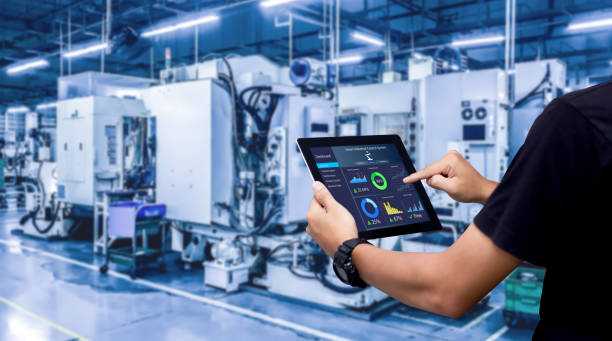Factory Jobs in Japan: What to Expect and How They Work
Many people explore factory jobs in Japan as a way to gain work experience or live abroad. These roles may have different requirements and schedules, but they can offer stable tasks and clear expectations. Learn more about what to expect and how others approach these opportunities. Discover more in this article.

What Types of Manufacturing Work Are Available in Japan?
Manufacturing work in Japan spans numerous industries, from automotive and electronics to food processing and textiles. Major companies like Toyota, Honda, Sony, and Panasonic regularly hire foreign workers for assembly line positions, quality control roles, and machine operation tasks. Many positions focus on precision manufacturing, requiring attention to detail and adherence to strict quality standards.
The electronics sector offers opportunities in semiconductor production, smartphone assembly, and computer component manufacturing. Automotive factories provide roles in vehicle assembly, parts production, and quality inspection. Food processing plants hire workers for packaging, sorting, and production line supervision.
How Do Blue-Collar Jobs Work in Japan’s Employment System?
Blue-collar jobs in Japan operate within a structured employment framework that emphasizes teamwork, punctuality, and continuous improvement. Most factory positions require workers to participate in daily team meetings, follow standardized procedures, and contribute to workplace efficiency initiatives.
The Japanese concept of “kaizen” (continuous improvement) plays a significant role in factory operations. Workers are encouraged to suggest improvements to processes and participate in problem-solving activities. This collaborative approach creates opportunities for skill development and career advancement within manufacturing companies.
Work schedules typically follow standard patterns, with most factories operating on 8-hour shifts across multiple time periods. Some facilities run 24-hour operations, offering night shift positions that may include additional compensation.
What Are the Requirements for Temporary Factory Work?
Temporary factory work in Japan typically requires basic physical fitness, attention to detail, and the ability to follow safety protocols. Most positions don’t require advanced Japanese language skills, though basic communication abilities can be helpful for daily interactions and safety instructions.
Educational requirements vary by position, with many entry-level roles accepting applicants with high school completion. Some technical positions may prefer candidates with vocational training or previous manufacturing experience. Medical examinations and background checks are standard requirements for most factory positions.
Work visa requirements depend on your nationality and intended length of stay. Many temporary positions are available through Japan’s Technical Intern Training Program or Specified Skilled Worker visa categories, which are designed for foreign workers in manufacturing sectors.
How Much Can You Earn in Japanese Factory Jobs?
Factory worker salaries in Japan typically range from ¥150,000 to ¥300,000 per month (approximately $1,000 to $2,000 USD), depending on experience, location, and specific role. Entry-level positions generally start around ¥180,000 monthly, while experienced workers and those in specialized roles can earn significantly more.
Overtime compensation follows strict Japanese labor laws, with premium rates for hours exceeding standard work periods. Many factories offer additional benefits including subsidized housing, meal allowances, and transportation support. Night shift workers often receive differential pay, adding 10-25% to base hourly rates.
| Position Type | Monthly Salary Range (¥) | Monthly Salary (USD) | Additional Benefits |
|---|---|---|---|
| Entry-Level Assembly | ¥150,000 - ¥200,000 | $1,000 - $1,350 | Housing subsidy, meals |
| Machine Operator | ¥180,000 - ¥250,000 | $1,200 - $1,680 | Overtime premium, transport |
| Quality Control | ¥200,000 - ¥280,000 | $1,350 - $1,880 | Skills training, bonuses |
| Shift Supervisor | ¥250,000 - ¥350,000 | $1,680 - $2,350 | Management training, housing |
Prices, rates, or cost estimates mentioned in this article are based on the latest available information but may change over time. Independent research is advised before making financial decisions.
What Should You Know About Japanese Factory Culture?
Japanese factory culture emphasizes respect, teamwork, and precision. Workers typically begin each shift with group exercises and safety briefings, fostering team unity and workplace awareness. Punctuality is crucial, with most workers arriving several minutes before their scheduled start time.
The concept of “omotenashi” (hospitality) extends to workplace relationships, encouraging mutual support and consideration for colleagues. Senior workers often mentor newcomers, sharing knowledge about processes and workplace customs. This mentoring system helps international workers adapt to Japanese manufacturing standards and cultural expectations.
Safety protocols receive significant attention, with regular training sessions and strict adherence to protective equipment requirements. Workers participate in emergency drills and safety committee meetings, contributing to Japan’s reputation for workplace safety in manufacturing environments.
How Can International Workers Prepare for Factory Jobs in Japan?
Successful preparation for factory jobs in Japan involves understanding basic workplace Japanese phrases, researching company-specific requirements, and developing familiarity with Japanese business customs. Many recruitment agencies offer pre-departure training covering language basics, cultural orientation, and job-specific skills.
Physical preparation is important, as factory work can be demanding. Building stamina and practicing attention to detail can help you succeed in precision manufacturing environments. Researching your potential employer’s products and manufacturing processes demonstrates genuine interest during interviews.
Documentation preparation includes ensuring passport validity, gathering educational certificates, and obtaining required medical examinations. Many positions require workers to complete orientation programs upon arrival, covering safety procedures, quality standards, and workplace policies.
Factory jobs in Japan provide valuable international work experience while offering stable employment in advanced manufacturing environments. The combination of competitive compensation, structured career development, and cultural immersion creates unique opportunities for personal and professional growth. Success in these roles depends on adaptability, attention to detail, and respect for Japanese workplace culture, making them suitable for motivated individuals seeking meaningful international work experiences.




